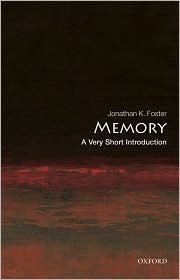More on this book
Kindle Notes & Highlights
The key point here is that we tend to remember the information that is most salient and useful for us.
instead of reproducing the original event or story, wederivea reconstruction based on our existing presuppositions, expectations and our ‘mental set’.
The essence of Bartlett’s argument is that people attempt to impose meaning on what they observe in the world, and that this influences their memory for events.
It is perhaps more helpful to think of memory as an influence of the world on the individual. Indeed, a constructivist approach describes memory as the combined influences of the world and the person’s own ideas and expectations. For
an event, as it occurs, is constructed by the person who experienced it.
Problems in encoding are often related to poor attention, whereas difficulties in storage are what we
refer to in everyday speech as forgetting. With retrieval, an important distinction is often made between availability and accessibility.
Marcel Proust when he wrote: ‘We soon forget what we have not deeply thought about’.


